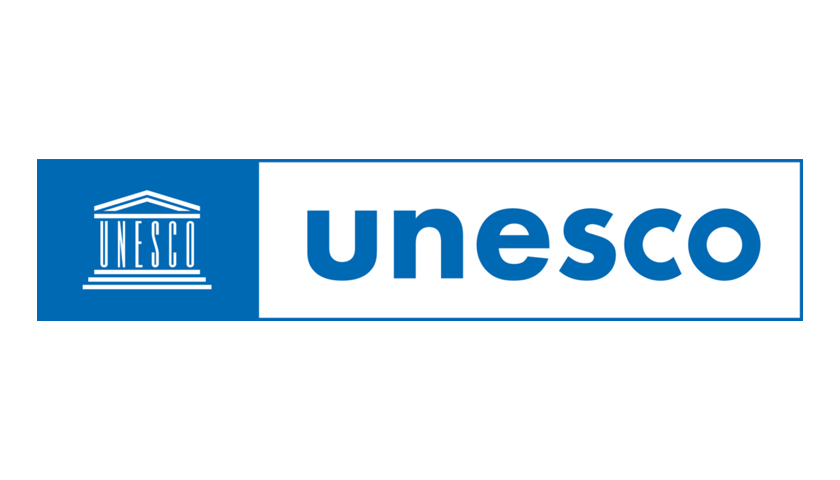GBV causes short and long-term harm to individuals, institutions and society. UNESCO wants Africa to reach its full educational and health potential; hence, we are working on freeing all students from GBV on campus through our Safer Campuses campaign.
Dr. Remmy Shawa, UNESCO Regional Office for Southern Africa.
The campaign officially launched on Tuesday, 26 March 2024 in a high-profile, online event moderated by Janet Mbugua, Kenyan media personality and founder of the Inua Dada Foundation, along with funders, partner organizations, media, GBV activists and campaign ambassadors.
***Register here: https://cutt.ly/SaferCampusesLaunch ***
A thriving, mentally and physically fit university community is key to achieving the goals and objectives we have set for our institution. The University of Zambia (UNZA) should provide leadership and set the pace for institutions of higher learning in addressing gender-based violence in our country and this is why we join the Safer Campuses campaign.
Professor Anne L Sikwibele, Outgoing UNZA Vice Chancellor.
The United Nations defines violence against women as “any act of gender-based violence that results in, or is likely to result in, physical, sexual, or mental harm or suffering to women, including threats of such acts, coercion or arbitrary deprivation of liberty, whether occurring in public or in private life.”
Young women in the Eastern and Southern Africa region are extremely vulnerable as they are likely to have already survived one or multiple experiences of GBV by the time they reach higher education institutions; all this in a global context where World Health Organisation data show that one in three women have experienced GBV at least once in their lifetime. Poor and working-class students are particularly vulnerable to sexual harassment and sexual assault by senior academic and non-academic staff as they fall prey to “sex for grades/support”. Junior female staff members are also vulnerable as senior male staff members may use job security/promotions as a reward for sex.
We are committed to creating an environment that is fair, humane, and supportive of educational and career advancement. We join UNESCO’s Safer Campuses campaign as we need to act and raise awareness on the harmful GBV practices within institutions, as well as sensitizing our students, staff members and the community.
Dr Lwatula, Outgoing Medical Officer, UNZA.
The UNESCO Safer Campuses campaign will engage all tertiary education stakeholders – government ministries, administrators, students, staff, management and campus ecosystems – to take action and work towards ending GBV by breaking the silence on this important issue.
The campaign will use various elements and channels to encourage audiences to break the silence and take action against GBV – including a Pledge, activations, dialogues and debates, and the sharing of Survivor stories.
Various activations will take place at Higher and Tertiary Education Institutions across the region, and those wanting to get involved will be able to access open-source materials – from T-shirts to posters to billboards ads – on the campaign website.
A radio drama series that crowdsources solutions to GBV-related issues faced by students will be played on campus radio stations.
Dialogues with campus influencers, where they will be in conversation with other peer influencers about GBV issues, will be aired on the campaign’s social media platforms.
A campaign website that houses all the campaign assets, including an open-source Digital Toolkit with downloadable collateral materials, will be going live in April.
Campaign updates can be found on the UNESCO Young People Today social channels @yptcampaign. Campaign hashtags are: #SaferCampusesCampaign, #BreakingtheSilence and #UnmuteGBV.
The Safer Campuses campaign sits under the umbrella of the O3 PLUS project, which UNESCO, with support from the Swiss Agency for Development and Cooperation, launched in Zambia and Zimbabwe in 2021. Additional support from the governments of Sweden, Norway, and France expanded the project to four more countries in the Eastern and Southern Africa region to add Kenya, Tanzania, Namibia, and Uganda.
The O3 PLUS project builds on and extends the Our Rights, Our Lives, Our Future (O3) programme, which is currently the largest comprehensive sexuality education (CSE) programme in Africa. It has been implemented across 33 countries in sub-Saharan Africa and aims to improve sexual and reproductive health, gender, and education outcomes for young people. The O3 PLUS Project focuses specifically on the higher and tertiary education cohort and aims to empower students in 38 higher and tertiary education institutions (HTEIs) across six countries to achieve positive health, education, and gender equality outcomes.
More information can be found here: https://www.learncse.online/
